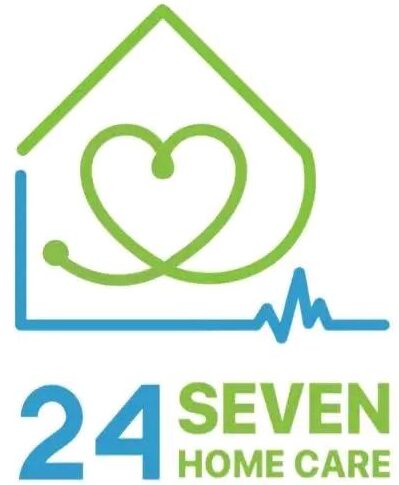Doctor at Hotel in Sharjah: A New Frontier in Healthcare
Table of Contents
Doctor at Hotel in Sharjah, The healthcare landscape has undergone significant changes in recent times, particularly in urban settings where life’s rapid pace can be overwhelming. To meet the increasing need for quick and accessible healthcare options, new approaches to medical service delivery have been developed. One such approach gaining popularity is the availability of medical services within hotels, especially in growing tourist and commercial centers like Sharjah in the United Arab Emirates. This article examines the idea of having medical professionals available at hotels in Sharjah, exploring various aspects of this healthcare innovation, including its advantages, difficulties, and implications for both local residents and visitors.
The Context of Healthcare in Sharjah
Sharjah, the UAE’s third-largest emirate, is renowned for its deep-rooted cultural legacy and serves as a hub for learning and business. As the population grows, including a substantial number of foreign residents and visitors, there’s an increasing need for healthcare services. Conventional medical facilities, such as hospitals and medical centers, often face challenges in meeting this demand due to extended wait times and accessibility concerns. The introduction of medical services within hotels represents a forward-thinking solution to address this gap, offering immediate healthcare access to those in need.
Population Demographics
Grasping Sharjah’s population makeup is essential for recognizing the importance of easily accessible healthcare. Recent data shows that Sharjah’s residents number over 1.6 million, comprising various nationalities. This diverse community brings forth distinct health requirements and obstacles. Sharjah attracts visitors with its historic landmarks, cultural events, and picturesque coastlines. Consequently, medical facilities must be flexible and quick to address the wide-ranging health concerns of both local inhabitants and travelers.
Healthcare Infrastructure
Sharjah boasts a comprehensive healthcare system, encompassing both government-run and private medical facilities. The Sharjah Health Authority oversees and governs these services, ensuring they adhere to specific quality standards. Nevertheless, conventional healthcare facilities may not always offer the immediacy or tailored care that visitors and busy professionals seek. In this context, medical services provided within hotels can play a crucial role in addressing these needs.
The Concept of Hotel-Based Healthcare
The practice of offering medical professionals at hotels is not a novel concept. Numerous high-end accommodations in metropolitan areas worldwide have embraced this approach, recognizing its benefits for their clientele. The fundamental idea is straightforward: provide in-house medical care to ensure guests can receive prompt attention for minor health concerns without leaving the convenience of their lodgings. This service allows travelers to address health issues quickly and easily, enhancing their overall stay experience.
Services Offered
Hotels in Sharjah that offer doctor services typically provide a range of medical care options, including:
Doctors offer comprehensive consultations for a wide range of health issues, spanning from common ailments such as colds and allergies to more intricate medical conditions. Additionally, in urgent situations, physicians on-site can administer immediate care and ensure patient stability before arranging transfer to a hospital when necessary.
Some hotels now offer various health-related services for their guests. These include medical check-ups such as measuring blood pressure, conducting blood tests, and performing general health evaluations. For travelers heading to international destinations, certain hotels provide on-site vaccination services against common illnesses. Additionally, many establishments have incorporated telemedicine options, allowing guests to consult with medical professionals through video calls without leaving their rooms.
Why This Model Works

The hotel-based healthcare model appeals to both guests and hotel operators for several reasons:
Convenience: Guests appreciate the convenience of having a doctor available on-site, reducing the stress of seeking medical help in an unfamiliar city.
Improved Visitor Satisfaction: By incorporating healthcare services, hotels can elevate their overall guest offerings. This provides reassurance for travelers accompanied by family members or those managing ongoing health issues.
Additional Income Stream: Integrating medical services into their offerings can create financial advantages for hotels. This approach appeals to travelers who consider health and wellness a priority during their trips.
Benefits of Doctor Services in Hotels
The presence of medical professionals in Sharjah’s hotels offers multiple benefits, improving the overall experience for travelers and providing quick healthcare access to local residents. This arrangement enhances both the quality of stay for guests and the availability of timely medical services for the community.
Immediate Access to Care
Having a physician on-site at a hotel offers a significant advantage: immediate healthcare access. Guests can receive medical assistance without needing to leave the hotel, which is especially beneficial for individuals with mobility issues or those experiencing illness during their visit. This convenient arrangement allows for prompt medical attention within the comfort of the hotel environment.
Reduced Waiting Times
Healthcare centers in conventional settings often face challenges with high patient influx, resulting in extended wait times for medical consultations. By offering healthcare services in hotels, this problem can be addressed, providing quicker access to care and easing the strain on public health systems.
Personalized Care
Healthcare professionals operating within hotel settings have the opportunity to provide more individualized attention to guests, dedicating time to comprehend their specific health needs. This individualized approach helps build a foundation of trust between the medical practitioner and the guest, potentially resulting in improved health-related outcomes.
Comprehensive Health Services
Accommodations providing extensive medical services can address a diverse array of health requirements, ranging from routine care to preventive treatments. This comprehensive strategy resonates with the increasing popularity of health-focused and wellness-oriented travel.
Stress Reduction for Travelers
Vacations can be anxiety-inducing, and experiencing health problems while away from one’s usual environment can intensify these feelings. The availability of medical facilities at the destination enables visitors to quickly address any health-related concerns, reducing worry and enabling them to fully appreciate their time away.
Challenges and Considerations
While the concept of doctor services in hotels is promising, several challenges must be addressed to ensure its success.
Regulatory Compliance
In the UAE, healthcare services are governed by rigorous regulations and licensing protocols. To ensure adherence to these complex and often time-intensive regulations, hotels must collaborate closely with health authorities. This process requires thorough attention to detail and ongoing communication between hospitality establishments and regulatory bodies.
Quality of Care
Maintaining the highest standards of medical care provided by physicians working within hotels is essential. Establishments must collaborate with competent medical professionals and establish strict protocols to uphold exceptional levels of service.
Limited Scope of Services
On-site medical services at hotels generally cater to minor health concerns and routine checkups. Guests should be aware that more complex medical conditions may necessitate transfer to a hospital, as the hotel’s healthcare facilities have certain constraints.
Cultural Sensitivity
Sharjah boasts a multicultural population, necessitating healthcare professionals to be mindful of the diverse cultural beliefs and customs of patients from various backgrounds. To address this issue, implementing educational and awareness initiatives can be beneficial.
Cost Implications
Visitors may worry about the expenses related to medical care provided at the hotel. Establishments should offer clear pricing information and payment alternatives, including the acceptance of insurance coverage when possible.
Case Studies and Success Stories
Several hotels in Sharjah and the broader UAE have successfully implemented doctor services, showcasing the viability of this healthcare model.
Al Ain Palace Hotel
The Al Ain Palace Hotel has formed a collaboration with nearby medical facilities to provide in-house health consultations for its visitors. This new offering has been well-received, especially by guests traveling with small children. The initiative allows families to access medical care conveniently within the hotel premises, adding a valuable service to their stay experience.
Sharjah Rotana Hotel
The Sharjah Rotana Hotel offers an on-site medical facility, providing guests with round-the-clock access to healthcare services. This amenity has not only improved the overall guest experience but has also become a draw for travelers who prioritize health and value prompt medical attention during their stay.
Marriott International
Marriott International has introduced a new service across its UAE properties, offering guests access to remote medical consultations. This program enables visitors to connect with healthcare professionals virtually, highlighting the growing emphasis on convenience in today’s travel industry.
The Future of Hotel-Based Healthcare in Sharjah
As the healthcare landscape continues to evolve, the trend of doctor services in hotels is expected to grow. Several factors contribute to this anticipated growth.
Increasing Demand for Convenience
As more travelers prioritize health and wellness, and global health concerns persist, there’s an increasing need for easily accessible medical services. Hotels that respond to this growing requirement are likely to gain a competitive advantage in the market.
Technological Advancements
The future of healthcare services in hotels will be significantly influenced by progress in remote medical care and digital health solutions. By incorporating these innovative technologies, hotels can offer streamlined and impactful medical assistance to their guests.
Expansion of Health and Wellness Tourism
The rising trend of health-focused travel has led to an increase in tourists seeking destinations that emphasize well-being. Accommodations that incorporate medical services into their amenities have the opportunity to establish themselves as frontrunners in this expanding sector of the tourism industry.
Collaboration with Health Authorities
The success of hotel-based healthcare services hinges on robust partnerships with local health authorities and medical providers. Such collaborations are crucial for ensuring regulatory compliance, maintaining high-quality standards, and enabling access to a diverse range of medical expertise.

Integrating Wellness Programs into Hotel Healthcare
The hospitality sector is experiencing a shift, with an increasing number of hotels recognizing the value of incorporating wellness initiatives alongside their existing healthcare offerings. By integrating these programs, establishments can offer guests a comprehensive approach to health that addresses both bodily and mental aspects of well-being.
Importance of Holistic Health
Comprehensive wellness emphasizes the integration of bodily, psychological, and emotional health. Establishments offering both wellness initiatives and medical care create a setting conducive to overall well-being. Such programs may encompass:
Active Wellness Programs: Hotels can promote guest health by offering exercise sessions such as yoga, Pilates, and general fitness, conducted by qualified instructors.
Dietary Education: Guests can benefit from nutritional seminars or one-on-one consultations with diet experts, helping them make better food choices and improve their overall well-being during their stay.
Addressing Mental Well-being: Providing access to mindfulness programs, workshops on managing stress, and connections to mental health professionals can support the emotional aspects of wellness. These resources offer assistance to individuals experiencing travel-related anxiety or stress, contributing to their overall psychological health.
Collaboration with Wellness Experts
Hotels can enhance their wellness offerings by partnering with specialists in diverse areas, including exercise instructors, diet experts, and psychological health counselors. Such partnerships can lead to comprehensive programs that address the varied wellness needs and preferences of guests.
Benefits of Wellness Integration
Integrating wellness programs into hotel healthcare services offers numerous benefits:
Improved Visitor Satisfaction: Guests participating in health and fitness activities report greater contentment, leading to a more favorable overall stay.
Strengthened Customer Retention: Offering comprehensive wellness and health services allows hotels to build guest loyalty, promoting return visits.
Appeal to Health-Focused Travelers: Establishments with robust wellness offerings can draw in travelers who prioritize health and well-being during their trips.
Marketing Hotel Healthcare Services
Implementing effective marketing techniques is crucial for the successful promotion of medical services offered by doctors in hotels. It is imperative for hotels to raise awareness about their on-site healthcare facilities among both potential visitors and local community members.
Leveraging Digital Marketing
Digital marketing strategies can significantly enhance visibility and reach. Hotels can employ various tactics, including:
Enhancing Hotel Websites: Ensure hotel websites provide detailed information about available medical services, including descriptions, costs, and healthcare professionals’ credentials.
Social Media Strategy: Leverage social media platforms to showcase patient testimonials, share health advice, and highlight special offers related to healthcare services. This approach can attract potential guests and increase community awareness.
Email Marketing: Create targeted email campaigns for past guests and newsletter subscribers to inform them about newly introduced services, health-related promotions, and wellness programs.
Collaborating with Travel Agencies
Collaborating with travel agencies can enhance visibility for hotel healthcare offerings. By incorporating details about accessible medical support in their marketing materials, travel agencies can appeal to travelers who place a high value on health and well-being during their vacations.
FAQs About doctor services in hotels in Sharjah:
Hotels in Sharjah that offer doctor services typically provide a range of medical care options, including general consultations for minor ailments, emergency care, health screenings, vaccinations, and telemedicine consultations. This ensures that guests have access to immediate medical assistance without leaving the hotel premises.
Hotel-based healthcare benefits travelers by providing immediate access to medical care, reducing waiting times compared to traditional healthcare facilities. It offers personalized care in a familiar environment, alleviating stress associated with seeking medical assistance in an unfamiliar city. Additionally, it enhances the overall guest experience and can contribute to guest loyalty.
Yes, hotels offering medical services ensure that all healthcare providers are properly licensed and accredited according to UAE regulations. This includes verifying the qualifications and certifications of the doctors, ensuring they adhere to professional standards and practices.
Hotels establish protocols to safeguard sensitive patient information, ensuring compliance with privacy regulations. This includes implementing secure systems for managing patient records and training staff on confidentiality practices to protect guests’ personal health information.
The costs for medical services at hotels can vary depending on the type of service provided. Guests are encouraged to inquire about pricing and payment options, including whether their health insurance covers any services. Transparency in pricing is essential, and hotels typically provide this information upfront to avoid any surprises.
Hotels can ensure cultural sensitivity by training their medical staff in cultural awareness and effective communication. They can also offer multilingual services to accommodate guests from diverse backgrounds and be respectful of specific cultural practices related to healthcare. Gathering feedback from guests can further help hotels improve their cultural competency.
Conclusion:
Sharjah’s innovative approach to healthcare combines medical services with hotel accommodations, bridging the gap between hospitality and medical care. This forward-thinking strategy offers guests immediate healthcare access, improving their overall stay while catering to the medical needs of both local residents and visitors.
The outlook for hotel-based healthcare in Sharjah looks bright as the need for accessible medical services grows. Hotels can establish themselves as frontrunners in the expanding field of health and wellness tourism by embracing technological advancements, collaborating with medical experts, and incorporating holistic wellness initiatives. This approach allows them to meet the increasing demand for easily accessible healthcare options.
As global connectivity increases, the intersection of health and travel becomes more prominent. The partnership between hospitality and healthcare sectors will be crucial in molding future guest experiences. Hotels in Sharjah can establish new benchmarks in health and wellness through ongoing innovation and a dedication to high standards. This approach could serve as an example for other cities and regions to emulate.
The integration of medical professionals into hotel services represents a significant advancement towards a future that prioritizes health and accessibility. Travelers are increasingly seeking accommodations that offer more than just a place to rest; they desire experiences that cater to their overall wellness. This fusion of healthcare and hospitality is creating new possibilities for enriching travel experiences in Sharjah and other destinations. From addressing minor health issues to promoting comprehensive well-being, the presence of doctors in hotels is reshaping the way guests approach their stays, offering a blend of comfort and medical support that enhances the overall travel experience.


